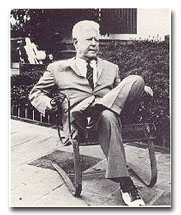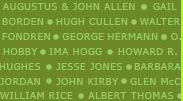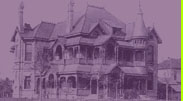GREAT CITIZENS - ROBERT EVERETT (R.E. BOB) SMITH
 Another of Texas' great oil men, who rose from relative to obscurity the top of their profession, was Robert Everett (R.E. Bob) Smith. He was born on August 28, 1894 in Greenville, Texas to Robert Davis Smith and his wife. In 1905, Smith's father took the 11-year old boy with him to visit the Spindletop oil field, where the elder Smith had bought some land. The boy was fascinated and indeed, a few years later Bob Smith became a field worker for the Texas Company and the Gulf Company in the booming East Texas oil fields. In 1911, he graduated from Humble High School and, for the next 10 years, played semi-professional baseball in the area.
Another of Texas' great oil men, who rose from relative to obscurity the top of their profession, was Robert Everett (R.E. Bob) Smith. He was born on August 28, 1894 in Greenville, Texas to Robert Davis Smith and his wife. In 1905, Smith's father took the 11-year old boy with him to visit the Spindletop oil field, where the elder Smith had bought some land. The boy was fascinated and indeed, a few years later Bob Smith became a field worker for the Texas Company and the Gulf Company in the booming East Texas oil fields. In 1911, he graduated from Humble High School and, for the next 10 years, played semi-professional baseball in the area.
An independent, red-headed man with a penchant for wearing white suits in his later years, Smith became, in 1920, a drilling contractor and owned 36 producing oil wells in East Texas as well. In 1925, he moved to Houston. The city became headquarters for his various enterprises, which soon included ranching, real estate and, eventually, philanthropy.
Smith was an intuitive man with little formal education. For years, his oil company functioned with no geologists--Smith knew by instinct, and by observation of surface indications, where oil was, and he discovered it himself. His holdings and interests extended far beyond the boundaries of Houston and Texas. In 1952, he became part owner of the Philadelphia Atheletics major league baseball team, and later was instrumental in Houston's acquisition of a major league baseball franchise. While his partner, Roy Hofheinz, provided the promotional skills, Smith provided the money, in 1962, for acquiring a National League franchise team--the Houston Colt 45's, now the Astros. Smith served as chairman of the board for the Houston Sports Association and strongly supported the two bond issues totaling $31 million for the construction of the Harris County Domed Stadium (the Astrodome).
BY 1964, Smith owned some 11,000 acres of land in Harris County, including a 4.5 mile-wide tract in southwest Houston and parcels in north Houston, all amounting to about two percent of the entire undeveloped acreage in Houston. In addition, he owned some 25,000 acres of ranch land throughout Texas and Oklahoma on which he raised more than 10,000 heads of various types of cattle, thoroughbred and quarter horses. At the time of his death, he was the third largest individual landholder in Harris County.
Smith served on the boards of numerous civic, religious and educational institutions. Among the positions he held were chairman of the Houston Housing Authority, member of the National Conference of Christians and Jews, and trustee of Methodist Hospital, Southern Methodist University in Dallas, Southern University in Georgetown, Texas and Lon Morris College in Jacksonville, Texas.
A quiet philanthropist, Smith donated both land and money to the Texas Methodist Conference and the University of Texas Medical Branch at Galveston, among others. He received honorary doctor degrees from Southwestern University, Pepperdine University and Texas Wesleyan College.
Smith died at his River Oaks home on November 29,1973 at age of 79. Among the memorials to the Houston oil man is an oil derrick in downtown Kilgore in northeast Texas and the gymnasium, named in his honor, at Lon Morris College in Jacksonville, Cherokee County, East Texas.






